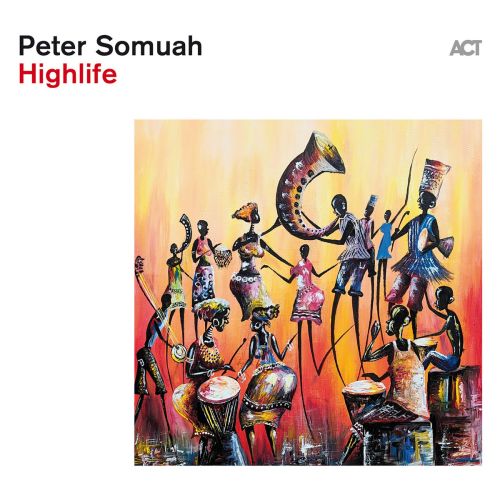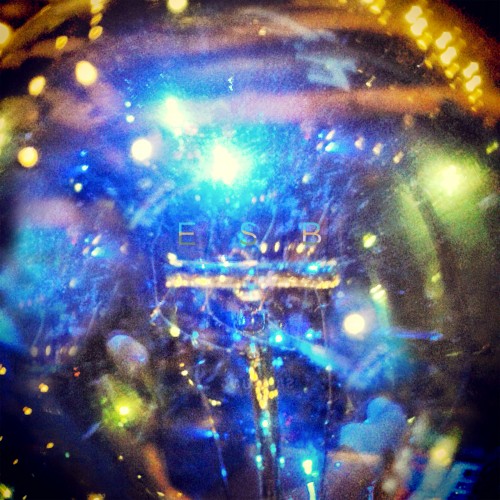Bureau B
 One of the interesting things which springs first to attention with the opening notes of Adrift is the loping acoustic bass which Tarwater use to underpin their sound. Its liquid tones give a smoothed, if not entirely smooth, basis to the duo’s twelfth album of literate not-exaxtly-jazz, not-entirely-electronica and certainly not-really-post-rock.
One of the interesting things which springs first to attention with the opening notes of Adrift is the loping acoustic bass which Tarwater use to underpin their sound. Its liquid tones give a smoothed, if not entirely smooth, basis to the duo’s twelfth album of literate not-exaxtly-jazz, not-entirely-electronica and certainly not-really-post-rock.
This absence of conformity to genre is one of Tarwater’s great strengths, and they manage to sound like only themselves as a result. Once again,
Ronald Lippok‘s languid and occasionally sardonic vocals are delivered in lightly-accented English (the way he says “wampire” on “Stone in Exile” is a rare example of his German pronunciation slipping to the foreground, quite charmingly and no doubt entirely on purpose) with an insistent gentility which sometimes conveys a flickering sense of wonder at the beauty still able to be found in the world. Still able, because these songs, and poems by others, set to his and
Bernd Jestram‘s music are grouped together under the rubric of a title (and the cover photo of an abandoned Tempelhof Airport) which speaks directly of an aimless trajectory, a rudderless peregrination where
collapse, loss, absence and transformation are everywhere.
This is evident especially when Lippok declaims “No common place…” on “The Glove,” “No common cause… too many things to fear…” While his words echo and repeat around a densely-packed yet wide-open and spacious melody, it seems as if Lippok has much on his mind, as has the music whose tape effects and extraneous environmental sounds switchback among the pings and electronic manipulations. The effortless blending of scrapers, shakers, bass and electric piano with the laptop sounds of computer music is something which Tarwater have always applied deftly, and here on Adrift the production values hit just the right balance between sequenced precision and warm, essentially humanist grit.
Guest
Ann Cotten reads her poem “Homology, Myself” while Tarwater set loose a flurry of self-sampled rhythms and reverberating percussion which glide into the final slide of a Theremin, while the dub-derived basslines which have frequently been a feature of their music (and Lippok’s with his brother Robert in
To Rococo Rot) make an appearance, for example, on “They Told Me In The Alley,” whose words were written by Cotten and
Kerstin Cmelka. With its shuffling drum brushes and bouncy synth melody cycling around, it’s a quirky yet typically representative track on an album which
shimmies effortlessly from one apparently straightforward but self-evidently strange composition to another. By the time Lippok observes “Well, yes; it happened,” on the final track, and the narrator of the song explains slightly irritably (with the aid of guest vocalist
Sabrina Milena) that it’s more difficult every day to exist on “Rice and Fish” alone, it seems somehow entirely – if obscurely – suitable that Tarwater propose (or approve) somnambulence as a defining theme for
Adrift.
If indeed they are sleepwalking through their music, then perhaps Lippok and Jestram do so with the wide-awake stares of the townspeople of Werner Herzog‘s remarkably odd film Heart of Glass, where the entire cast were hypnotised and given acting directions while both fully conscious and preternaturally suggestible. There’s a similar feeling on Adrift that Tarwater’s music – and maybe their audience, perhaps entire populations – exist in a similar state, where suggestions and directions, however surreal or bizarre they might seem at first, are being issued by chance or design, to be followed to their inevitable yet stochastic, unpremeditated conclusions – logical and illogical alike.
-Linus Tossio-
 One of the interesting things which springs first to attention with the opening notes of Adrift is the loping acoustic bass which Tarwater use to underpin their sound. Its liquid tones give a smoothed, if not entirely smooth, basis to the duo’s twelfth album of literate not-exaxtly-jazz, not-entirely-electronica and certainly not-really-post-rock.
One of the interesting things which springs first to attention with the opening notes of Adrift is the loping acoustic bass which Tarwater use to underpin their sound. Its liquid tones give a smoothed, if not entirely smooth, basis to the duo’s twelfth album of literate not-exaxtly-jazz, not-entirely-electronica and certainly not-really-post-rock.


